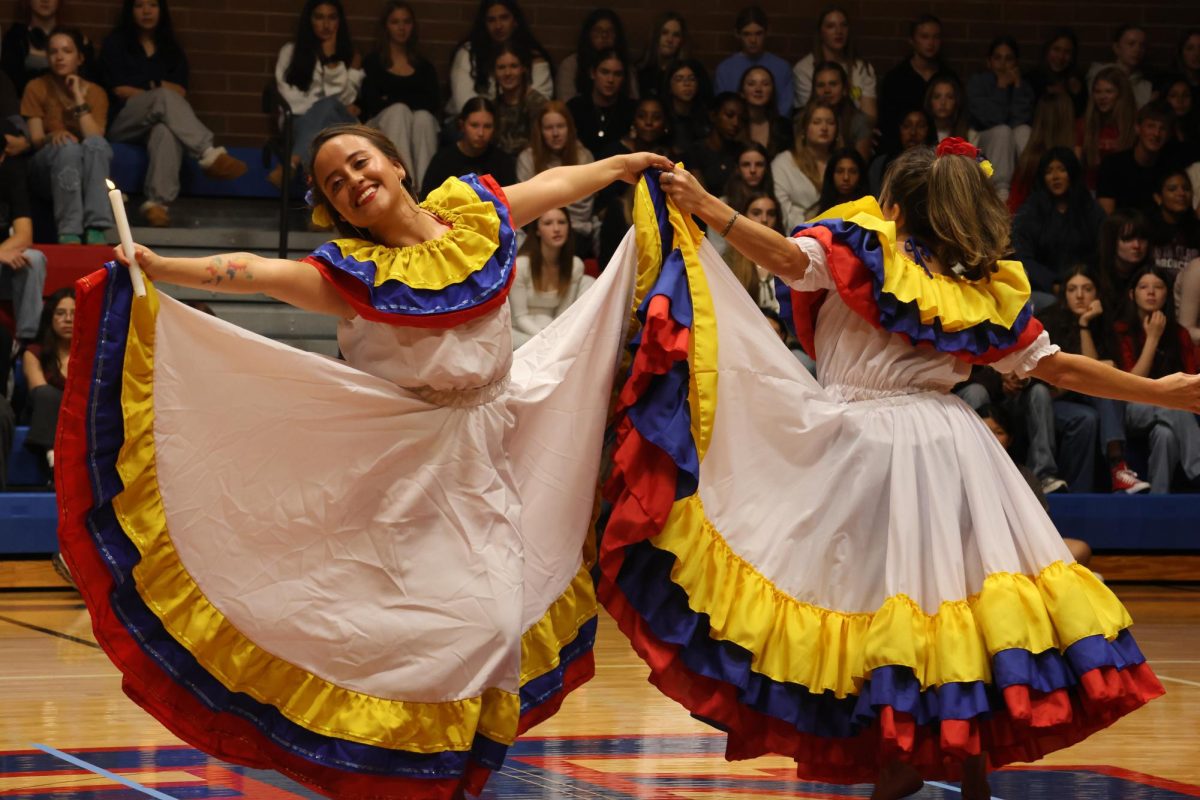For the first time in La Salle history, a group of four students and one teacher departed on an immersion to the Yakama Nation in Washington to learn and be of service.
From Sunday, Feb. 25, to Friday, March 1, the group participated in many activities to learn about the Yakama Nation along with doing service for many different organizations throughout the reservation.
The Yakama Nation reservation is located in Southern Washington and is home to the Confederated Tribes and Bands of the Yakama Nation.
This immersion originated at La Salle Yakima — a fellow Lasallian school — where students participate in this immersion during their high school years, and they wanted to expand their program and incorporate other Lasallian schools and allow them to have the opportunity to experience Yakama Nation, this year being the first.
This immersion was planned by La Salle Yakima Spanish teacher Ms. Eileen Maiocco, who directs service opportunities as a secondary role for the school.
Although they wanted the immersion to be the same as the one that Yakima students partake in, there were some differences due to weather. La Salle Yakima students usually participate in this immersion during the spring, but the group from La Salle went in the winter and therefore many of the programs they usually partner with were not as robust as they usually are.
“We didn’t do as much service or speak to as many people as we would have liked, and that is generally the case when other kids do it,” Director of Service Ms. Olivya Conner said.
On the first night, they had the opportunity to listen to Willow Howard who holds a position in the Yakama Nation government, and according to junior Avari Brocker she does the job of 12 people in her department, as there is no one else to do those jobs. For Brocker, the talk “shined a light on how underfunded that is, and that office has to get funding for its own office,” she said.
Driving into the reservation on the first day of their immersion, the group noticed hops growing on both sides of the road for miles. This observation connects to one of the most surprising things that Howard spoke to them about: The Yakama Nation is considered a dry reservation — meaning no alcohol or drugs.
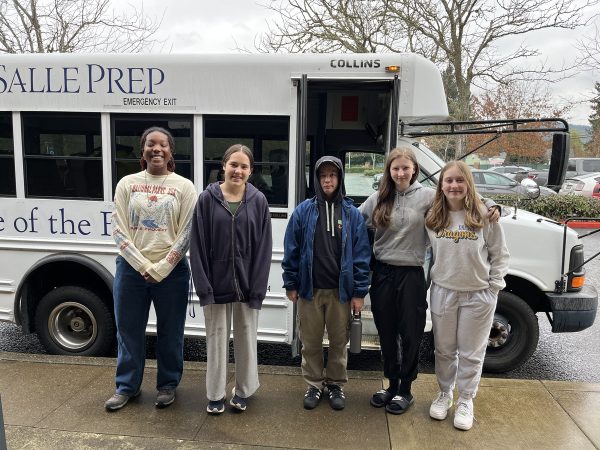
(Photo Courtesy of Ms. Olivya Conner)
Within the Yakama Nation once you reach a certain “status” on the reservation, you are able to lease/sell your land. Therefore, there are parts of the reservation that are owned or leased by non-Yakama people who grow hops on the land and reap the benefits of the land. “Because the reservation is dry, no one who is growing hops is Yakama, which means that none of the money that is being made from the hops that [are] growing for beer is going back to the community,” Ms. Conner said.
This is a constant topic of debate within the Yakama government, and the question of whether they should be leasing the land to people to make alcohol comes up a fair amount.
Coming away from the talk, Howard told them if there’s one thing to take away, “it’s that the entire U.S. government needs to get better at consulting with the Native American tribes,” Brocker said.
Although this was the only talk they heard during the immersion, the group found this one extremely powerful. “I hope for the future of that program that we have more speakers because I think that is the only way that we truly get that immersive feeling of learning about the Yakama Nation and its culture,” Ms. Conner said.
Out of all the places they had the opportunity to visit, they spent the most time at the Prosser Hatchery. Having worked there for two days they partook in many different activities with many different species of fish, ranging from lamprey to salmon.
Many members of the group had not known what lamprey were and learned about them by being able to see them through different stages of their life.
Not only did they learn what lamprey were, but also why they are important in the Yakama tradition.
For the Yakama Nation, they call lamprey “first food,” which is “one of the first things on a table,” Ms. Conner said. The lamprey population in the Yakima River used to be immense, because of infrastructure such as dams whose sharp corners are difficult for lamprey to navigate, the hatchery is working to repopulate the river and combat the effects of these obstacles.
“They didn’t think about the ecological impacts or the impacts on the native people,” Brocker said about the building of dams.
The group not only learned about the importance of the lamprey in the Yakama culture, but also performed operations on the lamprey by injecting them with tags — which are used to track the lamprey during their life.
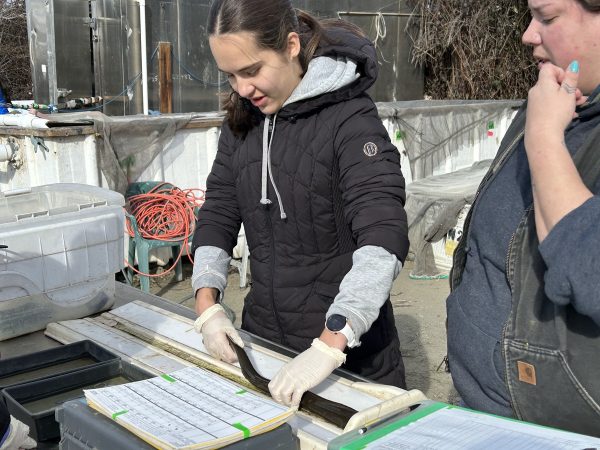
(Photo Courtesy of Ms. Olivya Conner)
Other things the group participated in included a trip to Fort Simcoe, partaking in service at the Village of Hope, and a trip to the Yakima Valley Museum — although they got lost and were supposed to go to the Cultural Heritage Center. Despite ending up at the museum by accident, Ms. Conner wants to continue to go there in future immersions as it showed aspects of Yakama Nation along with a history of the land and Yakima Valley.
On the final day, the group had the opportunity to tour the school La Salle Yakima, which is a part of the Northwest Connections program with La Salle and De La Salle. Spending the day there and attending classes, the group was able to recognize many similarities between the La Salle they call home and Yakima’s La Salle, such as the banners hanging in the hall.
Coming into this experience Ms. Conner was nervous because she wasn’t familiar with the students attending the trip, in conjunction with the fact that it was her first solo chaperone immersion. Throughout the week, as a result of the group not having the opportunity to interact with many other people, they really got to know each other.
Returning home, the group took many things with them. For senior Lauren Baker, this immersion helped her “practice expanding my perspective in a respectful way, so now I can do that when it’s not a designated time for it,” she said.
According to Ms. Conner this immersion is extremely important because it’s so close to home, and those who attended were able to connect with it on a deeper level than other immersions. The Yakima and Columbia rivers were discussed many times throughout the immersion, and those things that impact the rivers in Yakima impact the rivers in Oregon.
“I hope as time goes on, it will be more impactful as the students realize they didn’t just go and learn something just to learn it, but they can use what they learn to make change in their own community, which I think is more rare when it comes to immersions, because a lot of times we go so far out of our community that it isn’t always obvious how we can bring it back and make an impact,” Ms. Conner said.
For future trips, Ms. Conner hopes to grow the itinerary of the immersion, but the group still believed it was time well spent. “We were able to learn, we were able to grow, and we were able to connect,” Ms. Conner said.


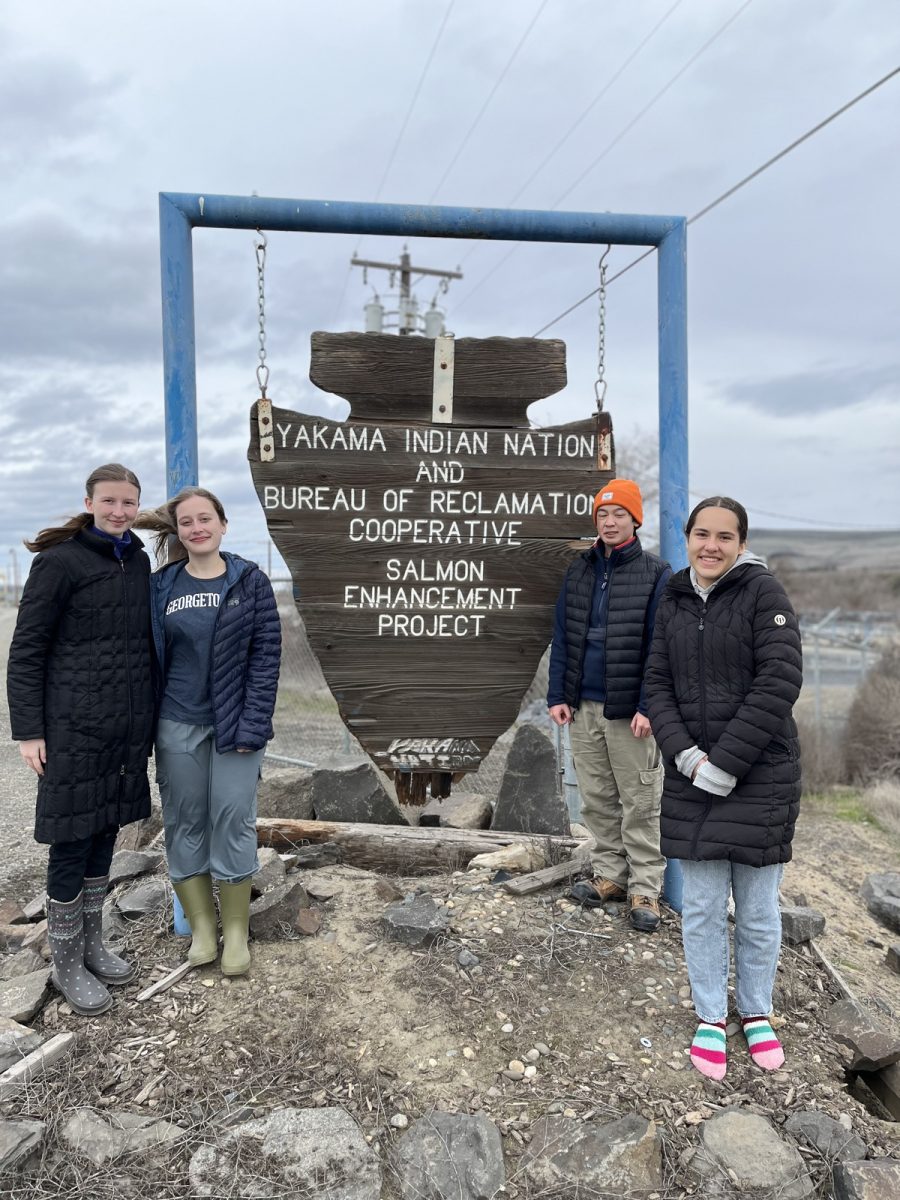
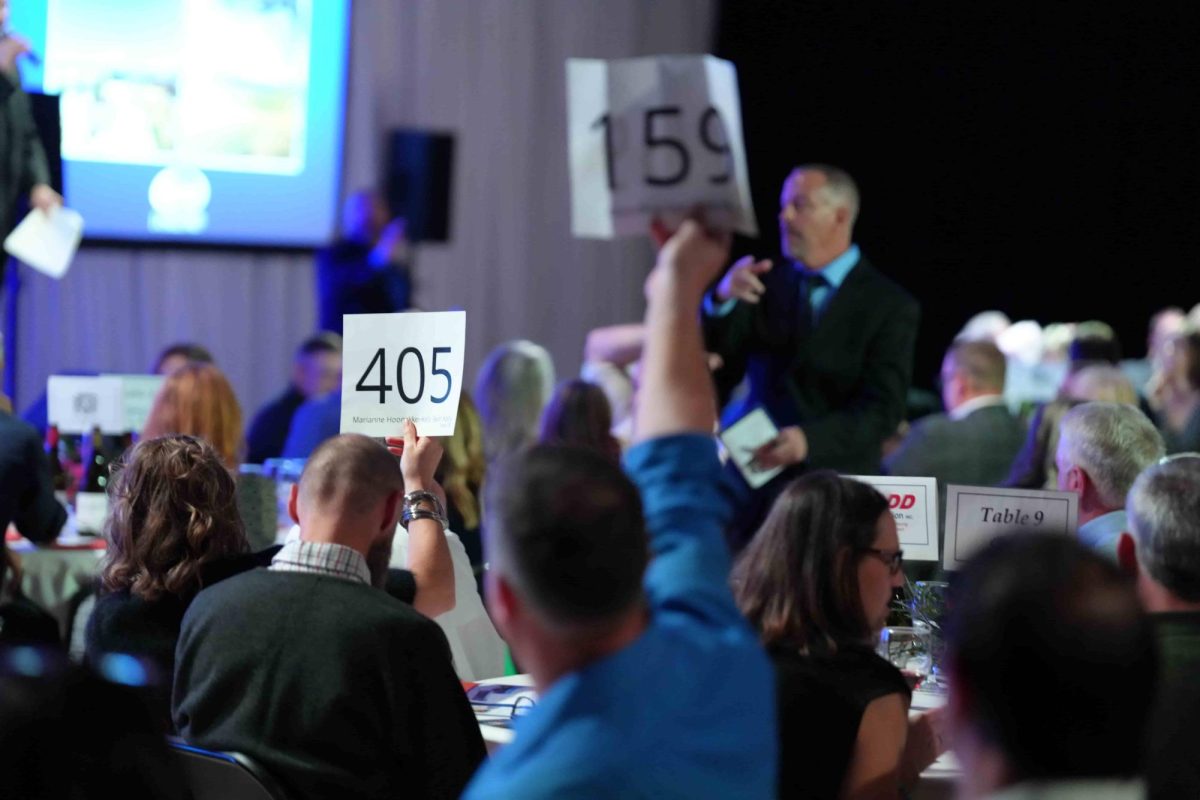


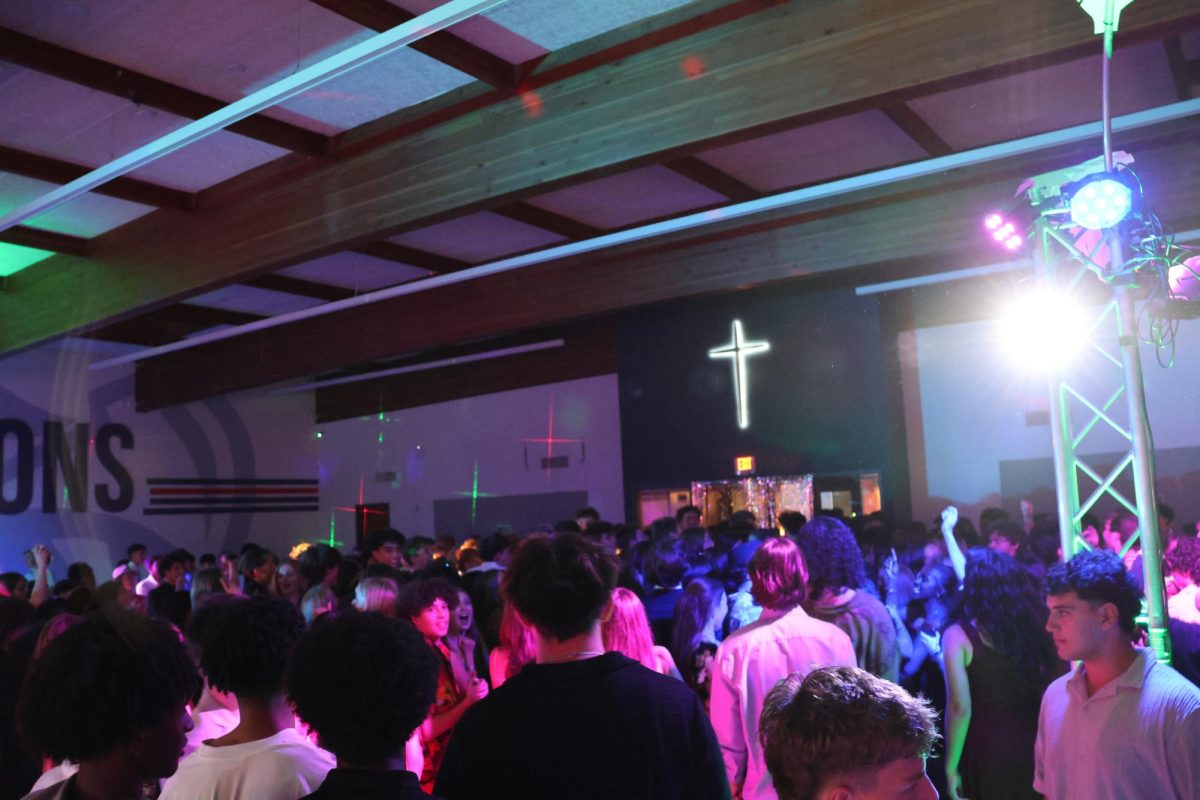
![Mr. Owen Furlong, the temporary Campus Safety Monitor, grew up near La Salle and described how Christ the King was “basically [his] backyard for a long time.”](https://lasallefalconer.com/wp-content/uploads/2025/10/115A2328-1200x800.jpeg)
